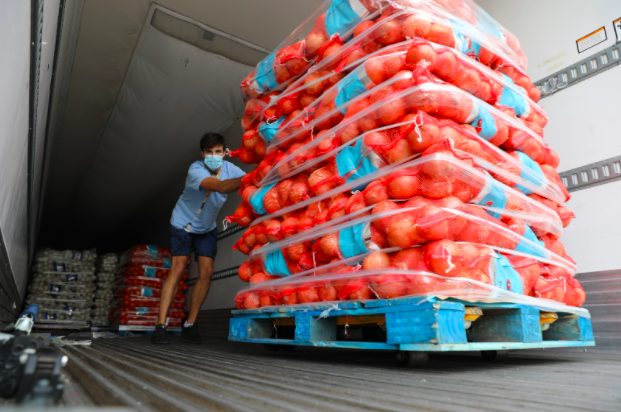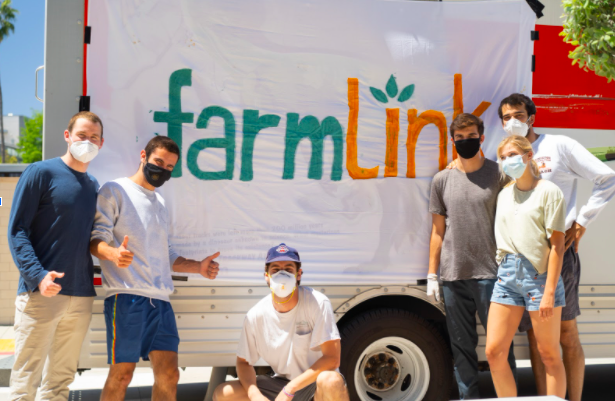“The worst day for farmers is the day that their crop gets buried right back into the field.”
These are the words that Doug Hess, a potato farmer in Idaho, told the Farmlink Project, an organization co-founded by James Kanoff ’22 and Aidan Reilly that fights food insecurity through repurposing surplus produce. Farmlink was one of three organizations awarded the $40,000 Westly Prize in January 2021, an annual grant that recognizes young innovators from California who aim to make the world a better place.
The team will put the prize money toward covering the cost of getting produce out of the field and loading it onto a truck, as well as transportation fees. The funding will also allow the organization to continue scaling its operations, and develop the organization’s longer-term vision.
Since she joined last spring, said Farmlink head of operations Caroline Ricksen ’22, the goals of Farmlink have shifted from hyper-growth to sustainability.
“This wasn’t just a summer project — this was something we were committed to for the long-run, and we wanted to make systemic change in the charitable food system and in the general supply chain,” Ricksen said.
Farmlink contacts farmers around the United States and collects their surplus crops to be donated to food banks. The organization started small, but its operations quickly scaled up. Today, according to Kanoff, Farmlink has a team of 225 part- and full-time volunteers and distributes about a million pounds of food a week across 48 states.
The organization’s successful expansion and long-term viability made Farmlink an undeniable candidate for the Westly Prize, selected from a pool of 100 other candidates across California. This year, the Foundation chose eight semi-finalists who received prizes of $5,000, and three finalists who each received $40,000. In addition to Farmlink, Central Valley Scholars and the Stuttering Scholarship Alliance also received the prize.
Westly Foundation founder and namesake Steve Westly ’78, described the leaders of Farmlink as “extremely impressive entrepreneurs” who embody the reasons he chose to establish the prize.

“My wife and I created this because we felt we wanted to give an incentive for the best and brightest people to not just run off — to work at McKinsey or Goldman Sachs or start the next Google and become multimillionaires or billionaires — but to provide incentive for the best and brightest to change the world,” Westly said.
In addition to the financial award, the executive director of the Westly Foundation maintains regular contact with prize recipients and serves as a mentor to the winning organizations. The Foundation has also previously hired executive coaches to help guide the finalists in their next steps.
“Being an entrepreneur or head of a company can be a lonely experience, and you run into blocks — and it just helps to know that other people have been through it, too,” Westly said.
Kanoff said he hopes to apply the lessons Farmlink learned during the pandemic and “turn that into something that is going to feed people for a lifetime.”
And Westly hopes the prize will continue to support individuals focused on social entrepreneurship and changing the world. He wants the prize to continue to inspire innovators across the country, including those at Stanford, to focus their efforts on social impact.
“I hope Stanford can be known not only as the technology and innovation center of the universe but someday also as the social entrepreneurial center of the world as well,” Westly said.
Contact Anuka Mohanpuhr at anuka ‘at’ stanford.edu
